Companies are constantly looking for innovative strategies to increase production and efficiency in the world of modern business. They do contend that change is constant, and remaining inactive in one place will ensure that you fall behind.
Utilizing cloud computing and DevOps engineering is one method that has grown in popularity recently. The majority of businesses are abandoning their traditional hardware inventory in favor of cloud computing and other digital technologies because of their many advantages.
The method of software development has changed in addition to the move to the cloud. DevOps plays a crucial part in this shift since traditionally, development and operations of software products were managed separately. However, today, with a speedier go-to-market, both development and operations are handled together. 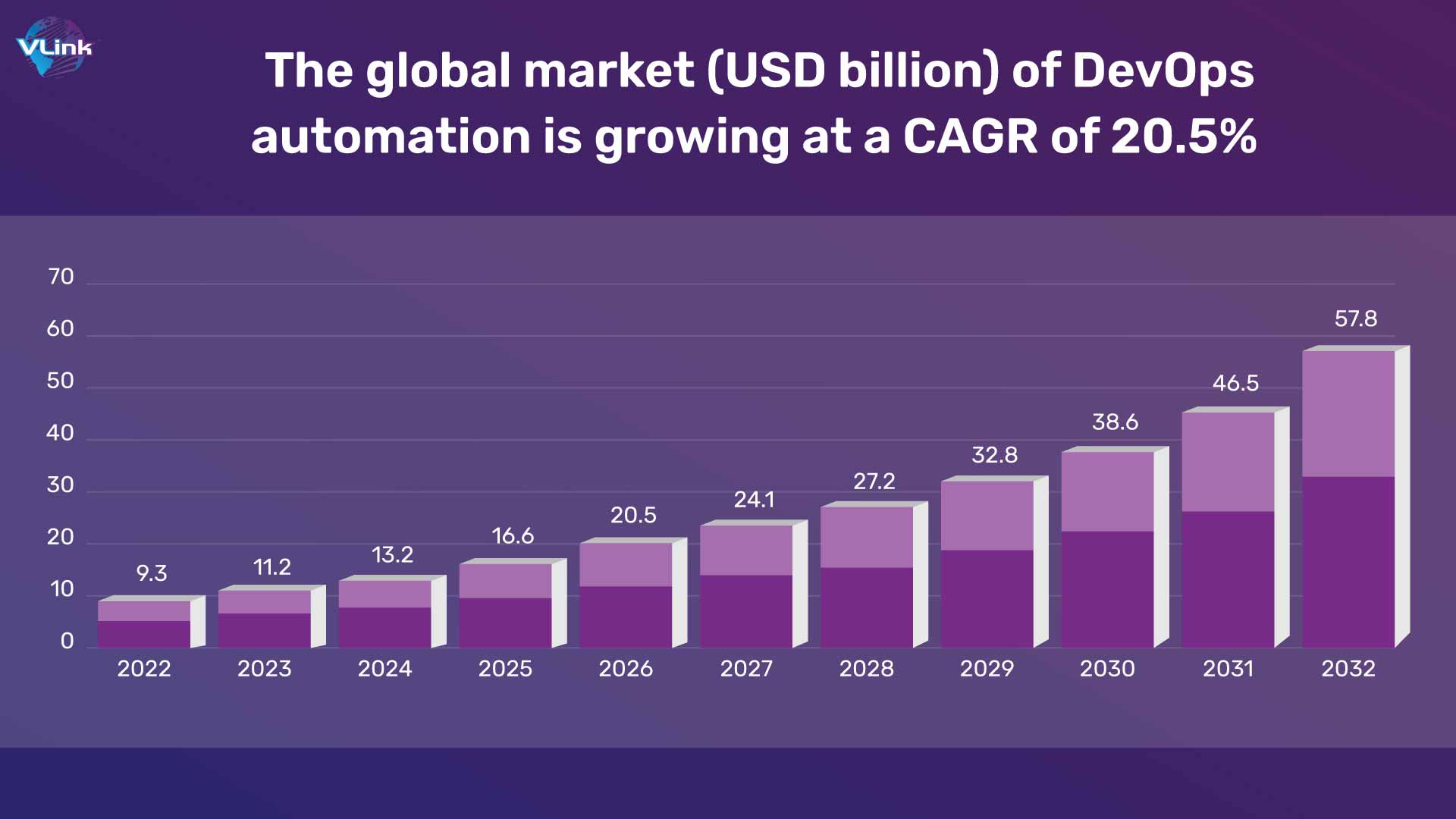 In order to do this, it's critical to comprehend how DevOps automation and the cloud function together to benefit modern enterprises.
In order to do this, it's critical to comprehend how DevOps automation and the cloud function together to benefit modern enterprises.
Understanding DevOps Automation
Software development process known as DevOps places a strong emphasis on communication, automation, and cooperation between development and operations teams.
According to what its name implies, DevOps automation involves automating DevOps processes to optimize and speed up the application lifecycle while ensuring continuous delivery of high-quality software.
DevOps automation removes the constraints imposed by conventional software development and infrastructure management methods when combined with the organizational culture attitude of seamless, cross-team cooperation. 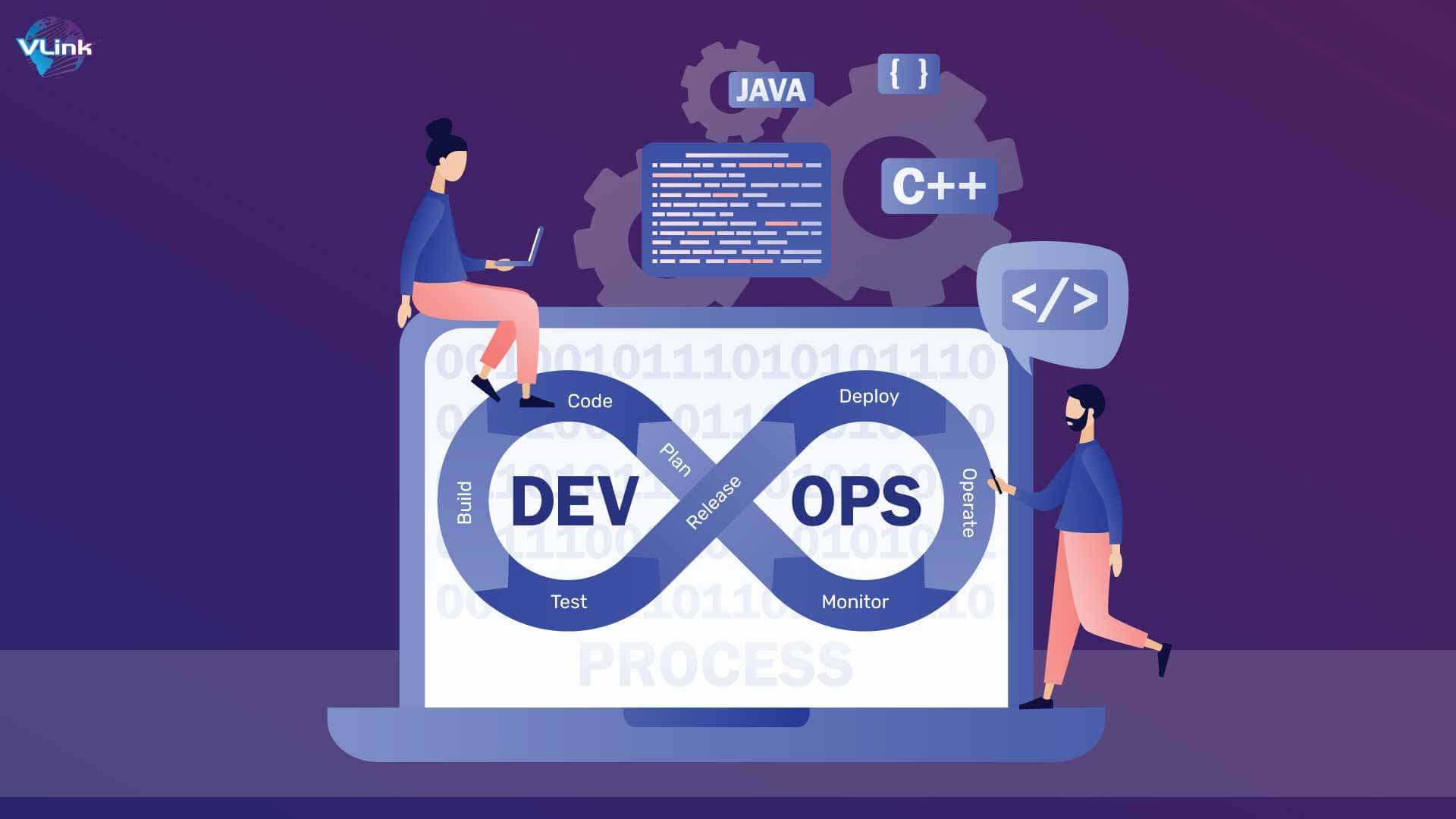 By dismantling silos and fostering a culture of continuous improvement, it seeks to accelerate the quality of software development process while also improving its speed.
By dismantling silos and fostering a culture of continuous improvement, it seeks to accelerate the quality of software development process while also improving its speed.
Why are businesses and developers moving towards cloud DevOps?
There has only ever been one enormous hurdle in software development. dealing with issues as they arise. However, we are not claiming that coders operate in a different time zone.
However, the process of creating, testing, deploying, and patching services takes time; it cannot be hurried (otherwise development teams would have to contend with a profusion of defects). DevOps can be used in this situation.
Businesses can assist developers in understanding the issues they are facing and make it simpler for them to debug code blocks using the different DevOps technologies by enhancing the synergy between their development and operations teams. 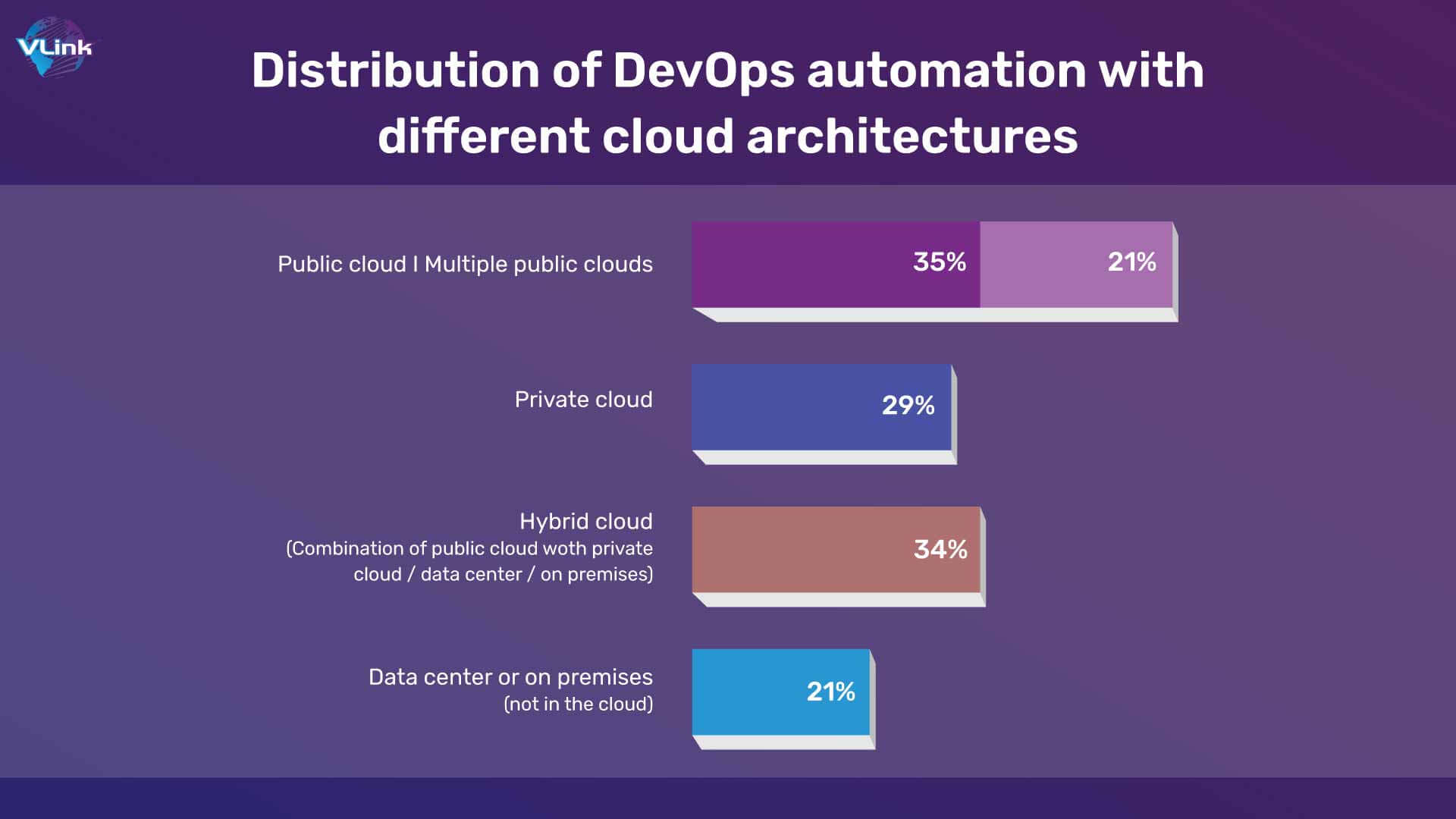 Operations teams, on the other hand, may concentrate on their tasks while still seeing to it that developers' demands are met when they arise. By enabling quick deployment and effective patch updates to get rid of any flaws, this in turn helps establish a continuous workflow.
Operations teams, on the other hand, may concentrate on their tasks while still seeing to it that developers' demands are met when they arise. By enabling quick deployment and effective patch updates to get rid of any flaws, this in turn helps establish a continuous workflow.
Now that we are aware of the close relationship between Cloud solutions and DevOps, it is time to go into the specifics of implementing DevOps automation with cloud architecture.
Implementation of DevOps automation with Cloud
By combining DevOps with cloud native architecture, your company can innovate more quickly, scale more effectively, and provide consumers with better overall experiences.
1- Adherence to DevOps culture
Create a culture that promotes collaboration, communication, and continuous improvement as the first step in deploying DevOps in a cloud-native environment. This entails dismantling the conventional silos that exist between the development and operations teams and building a collaborative atmosphere where everyone works toward common objectives.
2- Choosing the right tools
You may use a variety of tools and technologies available in the cloud native environment to adopt the latest DevOps trends and principles. Some well-liked choices include infrastructure-as-code technologies like Terraform, Jenkins, and Kubernetes, as well as container orchestration platforms like Kubernetes. 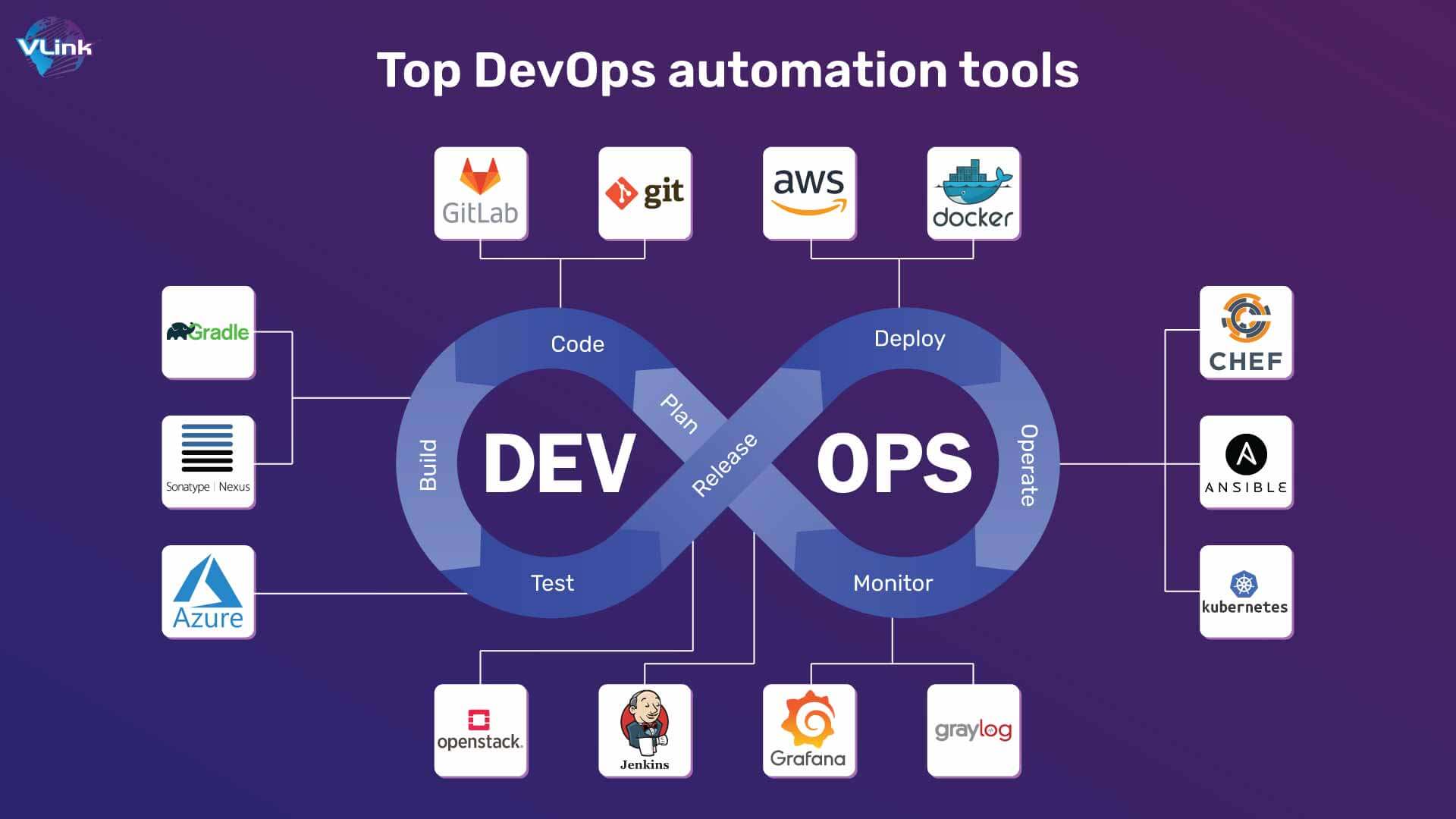 Spend some time weighing your alternatives and selecting the tools that best suit the requirements and objectives of your firm.
Spend some time weighing your alternatives and selecting the tools that best suit the requirements and objectives of your firm.
3- Automating possible business functions
In a cloud native environment, automation is crucial. Automation is at the core of DevOps. You may speed up procedures, lessen the chance of human mistakes, and make sure your applications are constantly current and functioning properly by automating operations like creating, testing, and deploying apps.
4- Deploying continuous integration & delivery (CI/CD)
For DevOps to be successful in a cloud native environment, a solid CI/CD pipeline is a need. This makes it possible for you to develop, test, and deploy your apps automatically as soon as modifications are made, guaranteeing that new functions and advancements are made available to your consumers as soon as feasible.
5- Track & optimize
Monitoring the functionality and health of your apps on a constant basis is crucial in a cloud native DevOps environment. Your ability to make data-driven decisions about how to optimize your apps and enhance the user experience will be aided by this. It will also help you detect problems and bottlenecks.
6. implement security & compliance
You must incorporate security best practices into your DevOps procedures since security is a crucial component of cloud native design. Incorporating security standards into your infrastructure-as-code templates and leveraging tools for container image scanning are a few examples of how to do this.
You can maximize the benefits of your DevOps and cloud native architecture deployment by adhering to these best practices, enabling you to fully capitalize on this potent alliance.
Benefits of deploying cloud-based DevOps automation
1- Drives smooth scalability
Scalability is one of the main benefits of cloud computing. Businesses don't need to worry about spending extra money on hardware or physical infrastructure because they can quickly scale up or down their cloud computing services in accordance with their demands.
This scalability can be particularly beneficial for companies that suffer rapid growth or seasonal increases in demand. Without having to make substantial expenditures in infrastructure or equipment, companies can rapidly and effectively adapt their resources to match the demands of their clients thanks to cloud computing.
Similar to this, by optimizing the software development and deployment processes, DevOps aids firms in increasing their scalability. DevOps may speed up the development and deployment of new software by automating a number of processes, enabling companies to react more rapidly to shifting market conditions.
2- Seamless collaboration
Cloud-based DevOps automation enhances workflows and procedures organically, resulting in standardized procedures. This ultimately helps create an efficient communication pathway between various teams. 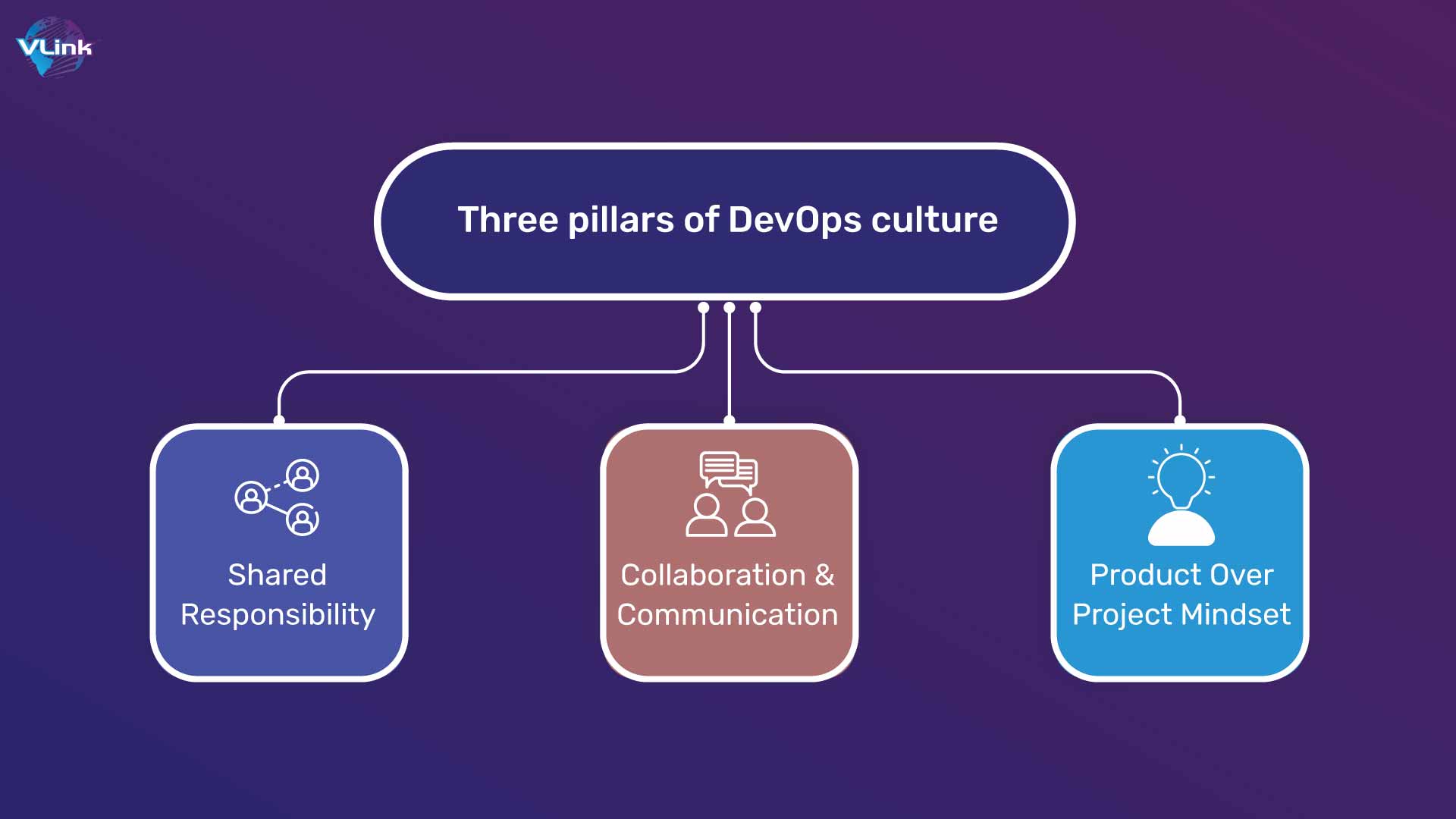 As a result, people from various backgrounds are better able to work together and combine their knowledge to provide the greatest outcomes possible for each project. Nothing can go wrong when teams collaborate in such a planned way, both while creating software and when monitoring systems and applications.
As a result, people from various backgrounds are better able to work together and combine their knowledge to provide the greatest outcomes possible for each project. Nothing can go wrong when teams collaborate in such a planned way, both while creating software and when monitoring systems and applications.
3- Reliable deployment
The ability of cloud-based DevOps automation to reduce the likelihood of human mistakes is a key feature. As a result, DevOps teams can manage their infrastructures and continuously monitor upgrades. Migrating data to cloud during this journey also impacted using the best practices and seamless methods.
However, they are able to offer new versions more often and dependably. Each change made for the new release is tested using continuous integration and continuous delivery to ensure it works as intended and is hence secure to be applied.
Real-time information on the performance of applications and infrastructure is provided via monitoring and logging. In the end, teams are able to focus on fresh innovative concepts when reliability is a continuous value.
4- Increased operational speed
Speed is the first advantage that businesses and teams perceive when using cloud-based DevOps automation techniques. That is, quick learning, quick analysis, quick testing, and quick iteration, which also leads to quick time to market.
Speed enables businesses to nearly "proactively" adjust to customer requirements, accelerating their growth and resulting in better commercial outcomes. More frequent releases than in the past are made possible by multidisciplinary teams being able to take control of and own the projects they are working on thanks to microservices and continuous delivery.
5- Improved security
Businesses can increase their security by using DevOps to foster a culture of collaboration and interaction among the development and operations teams. This is because by collaborating, these teams may more quickly and readily discover security vulnerabilities and take appropriate action, lowering the likelihood of security breaches.
Due to inherent security worries, several firms are hesitant to store their data in the cloud. This is reasonable. What is undeniably true, though, is that cloud computing can provide a higher level of security than conventional infrastructure. 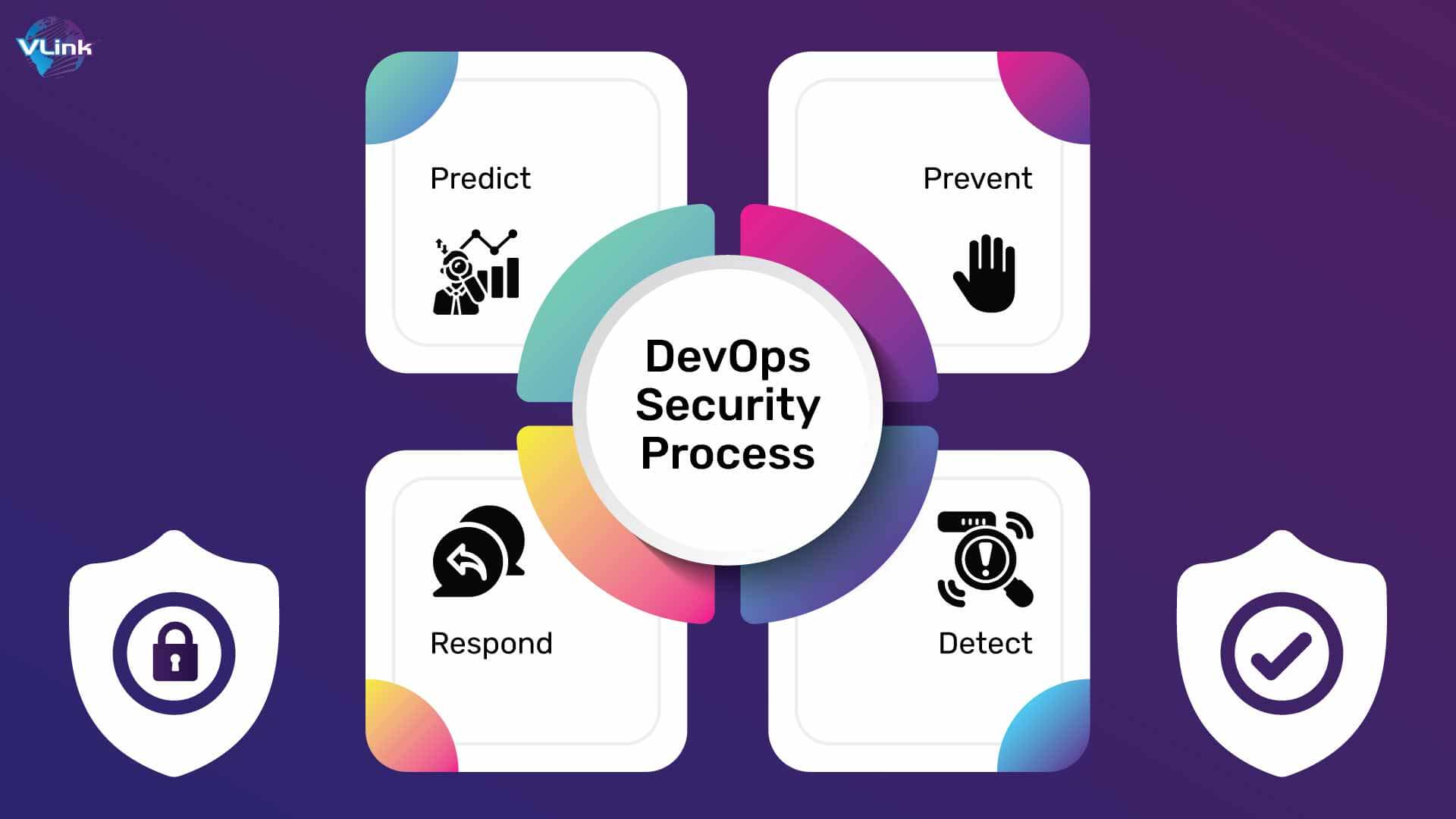 Cloud service companies make significant investments in security safeguards such firewalls, intrusion detection systems, and data encryption. In addition, cloud service providers can give access to the finest security techniques, enhancing the security posture of enterprises.
Cloud service companies make significant investments in security safeguards such firewalls, intrusion detection systems, and data encryption. In addition, cloud service providers can give access to the finest security techniques, enhancing the security posture of enterprises.
7- Quick & easy deployment
Rapid deployment can be assisted by cloud providers, but without DevOps, customization is difficult. By developing bespoke logic and writing capabilities, DevOps focuses on using the newest tools to solve infrastructure challenges.
DevOps assists in automating the entire process by utilizing single-click build tools that communicate with cloud services and complete the jobs accurately. By interacting with the cloud service apps using click build tools, DevOps provides tools to assist automate the process and prevent user mistakes. 
How VLink can help you in deploying cloud-native DevOps automation?
Your business may realize amazing potential and succeed more in the current fast-paced digital environment by adopting DevOps and cloud native architecture. Although the road is not always simple, the benefits of improved productivity, scalability, and creativity make the effort worthwhile.
Due to the numerous advantages, it provides for contemporary enterprises, VLink is aware of the significance of cloud computing and DevOps engineering.
These technologies may help companies stay competitive in the fast-paced digital environment of today, from increased scalability and efficiency to greater security and creativity. Businesses may expedite operations and enhance software development procedures by embracing cloud computing and DevOps.
Frequently Asked Questions
DevOps is well-known to be utilized as a reliable software development methodology. It is appropriate for cloud computing and helps developers work together with IT teams in a DevOps environment. This method enables almost immediate cloud product and service deployment by going past continuous integration and continuous delivery (CI/CD).
Azure DevOps offers several benefits over AWS for developers and development teams because to its smooth integration, Git repository support, CI/CD pipelines, Agile management of projects, various language support, Azure Pipelines, and enterprise-grade security.
An agile project can benefit from DevOps by accelerating delivery at all production pipeline stages. Other advantages of the DevOps methodology for agile projects include improved deliverable quality, smoother team collaboration, and enhanced infrastructure security.






